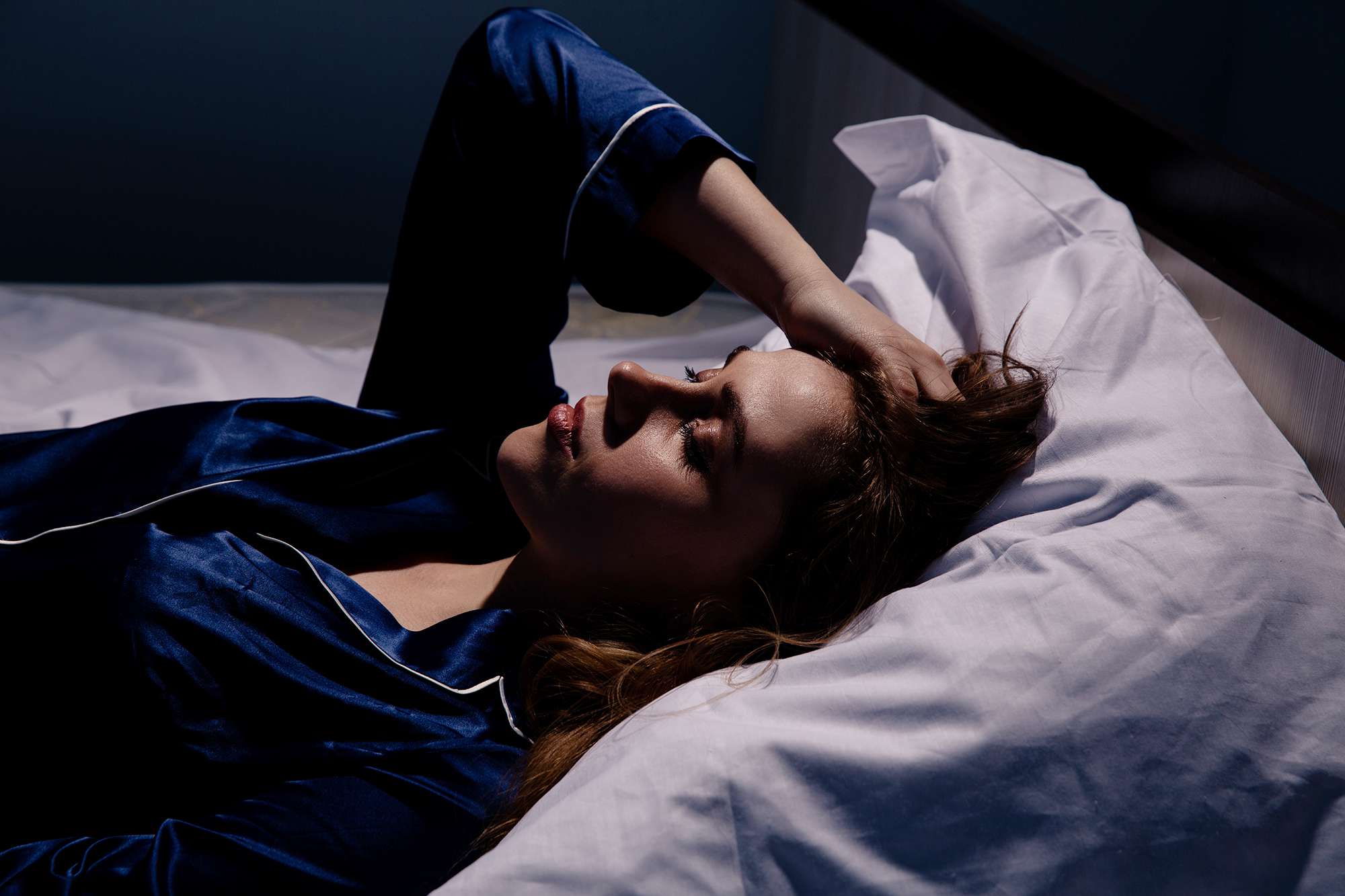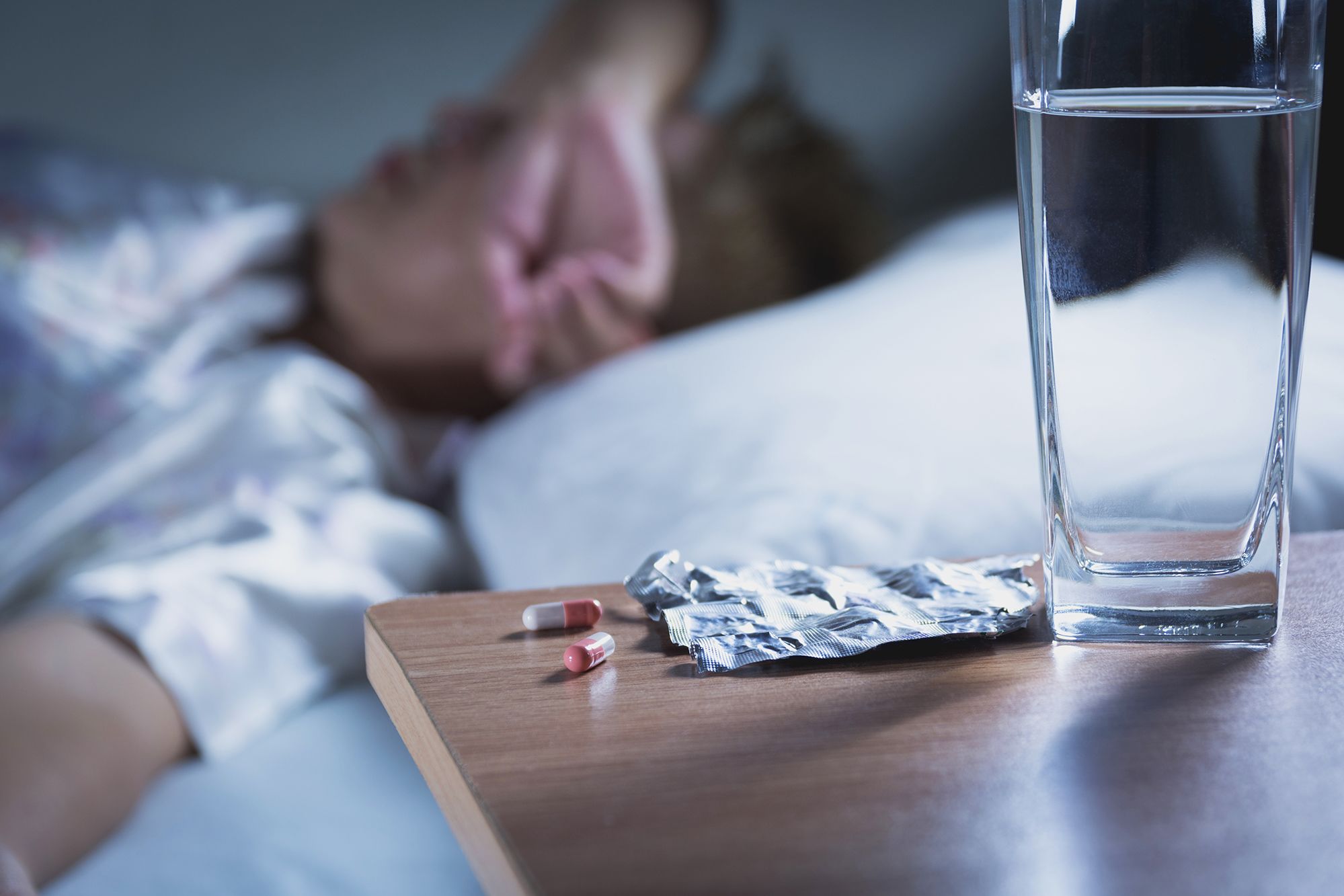Treatment Options for Insomnia
Sleepless nights and foggy days that seem to drag on are exhausting. The health complications that can arise from not getting an adequate amount of sleep aren’t any more fun.
Whether it’s been a few weeks, three months, or longer, any amount of time dealing with insomnia is too long. It’s time to take the first steps toward relief.
Insomnia symptoms are prevalent, occurring in 33-50% of adults. And if you’re older, you may be even more likely to deal with insomnia symptoms since they may present in up to 75% of older adults.
Primary insomnia has no known underlying cause. Secondary insomnia, however, can be a symptom of a medical condition or result from side effects from certain medications.
Sometimes, insomnia can persist, causing distress, impairing performance at work, and even disrupting your personal life. Insomnia occurring at least three times a week and lasting longer than three months is classified as chronic insomnia, which affects 10-15% of people.
Regardless of whether severe insomnia is already taking a significant toll or you are seeking to prevent short-term insomnia from turning chronic, you deserve a great, peaceful sleep every night so you can feel ready to take on the world. Relief is possible through pharmacological means, natural remedies, behavioral interventions, or a unique combination of these.
As you prepare to talk to your doctor or a sleep specialist, our aim is to get you thinking about the best treatment approach for you to overcome insomnia and regain control of your life and health.

Prescription Medications
For immediate insomnia relief, there are medications a doctor can prescribe to help you fall asleep and stay asleep.
Some insomnia drugs belong to a class of drugs called benzodiazepines. Benzodiazepines slow down the nervous system and brain activity by telling the brain to release the neurotransmitter GABA, causing sleepiness.
Other insomnia drugs, called non-benzodiazepine hypnotics (NBH), also reduce nervous system and brain activity by acting on GABA. However, many doctors consider NBHs a better choice than benzodiazepines because they produce less dependency, meaning it’s easier to stop taking them.
- Eszopiclone (Lunesta)– a benzodiazepine receptor agonist FDA-approved for managing chronic insomnia. Adverse effects include headaches, daytime sleepiness, loss of coordination, GI effects, sexual problems, painful menstruation, male breast enlargement, and more.
- Ramelteon (Rozerem)– a melatonin agonist, the only non-scheduled prescription drug approved for insomnia in the U.S. Ramelteon is effective in the elderly.
- Zaleplon (Sonata)– a non-benzodiazepine hypnotic. Works very briefly, helping individuals fall asleep, but does not reduce nighttime awakenings are increase total sleep time. At recommended doses, users don’t appear to experience side effects such as next-day sedation or returning insomnia after discontinuing the medication.
- Zolpidem (Ambien, Edluar, Intermezzo, Zolpimist)– a non-benzodiazepine hypnotic with mild muscle relaxant, anticonvulsant, and anti-anxiety effects. Zolpidem helps individuals fall asleep faster, stay asleep, and sleep longer. Side effects include drowsiness, dizziness, and headache.
- Zopiclone (Imovane/Zimovane)– a non-benzodiazapine hypnotic. Zopiclone helps individuals fall asleep faster, stay awake, and sleep longer. It delays REM onset but does not reduce the total REM duration. Adverse effects are uncommon at recommended doses, and returning insomnia is minimal when the medication is discontinued.
These medications can be effective at helping you get more restful sleep and function better. But doctors don’t usually recommend relying on them for longer than a few weeks (three to four). That’s because prescription insomnia drugs tend to be habit-forming with numerous side effects like drowsiness, memory and focus problems, and balance and coordination deficits, As many as 80% of users deal with at least one of these side effects.
Over-the-Counter Sleep Aids
There are also sleep aids you can get over the counter, including antihistamines, herbs, and supplements.
However, just because these products are available without a prescription doesn’t mean they come free of any risk. You should still talk to your doctor before using over-the-counter sleep aids (or any medications for that matter) to make sure they’re right for you and your body.
- Diphenhydramine (Benadryl) and Doxylamine (Unisom)– sedating antihistamines normally used to treat allergies and aren’t intended for regular use. Side effects can include daytime drowsiness, dry mouth, constipation, and difficulty urinating.
- Melatonin– a natural hormone that helps regulate the sleep-wake cycle. Melatonin supplements can help individuals fall asleep faster. Possible side effects include headaches, nausea, and daytime sleepiness. Warning: Melatonin should be taken with caution. Excessive doses can be harmful. It’s not FDA-regulated, so labels sometimes have errors in the dosage information and ingredient lists.
- Valerian– a flowering plant with sedating properties that may work via the brain’s GABA receptors. The herb has been used for thousands of years to relieve stress, promote sleep, and treat insomnia. Some studies show sleep benefits, but the evidence is somewhat inconsistent. Side effects may include mild headaches and weakness.
Over-the-counter sleep aids can have risks for those over the age of 65, pregnant and breastfeeding women, and people with medical conditions like glaucoma, peptic ulcer, and urinary retention. For people who take other medications, there are also risks associated with drug interactions.
Always talk to a doctor before relying on over-the-counter sleep aids. Your doctor will know whether a given sleep aid is safe for you.

Drug-Free Treatment Options
Especially in the long term, drug-free options are often the most preferable and effective ways to address and treat insomnia. There are a variety of sleep therapy techniques that can make a huge difference in reducing or eliminating insomnia:
Sleep Therapy
Sleep disorders often intertwine with mental health issues like depression, anxiety, bipolar disorder, OCD, and PTSD. Clinicians might combine several therapeutic approaches to address sleep-disrupting thoughts, behaviors, and underlying mental health factors.
Sleep therapy often involves keeping a sleep diary to record sleep habits and patterns. With technology, we can now enhance the idea of a sleep diary as a therapeutic tool by closely monitoring sleep patterns and biofeedback.
Wearable devices and digital platforms can also help patients and clinicians gather more detailed sleep data, draw insights, and personalize sleep therapy strategies.
Cognitive Behavioral Therapy for Insomnia (CBT-I)
Cognitive behavioral therapy (CBT-I) is the ‘gold-standard’ insomnia treatment. It’s centered around identifying negative sleep-related thoughts and behaviors so you can replace them with healthier sleep-promoting habits. Here are the CBT-I techniques sleep therapists often oversee:
- Stimulus Control– helps to eliminate stimuli that trigger sleep resistance. Instead, you condition your mind to fall asleep automatically in response to bedtime. Strategies include setting a consistent sleep and wake time, avoiding naps, and reserving the bed for sleep and sex. Leave work and entertainment out of the bed, and don’t lay awake in bed. If you don’t fall asleep within 20 minutes, leave the bedroom to do something relaxing, before returning once you’re sleepy.
- Sleep Restriction– This has a similar principle to stimulus control, avoiding habitually lying awake in bed, which can lead to poor sleep. Sleep restriction reduces how much time you spend in bed, initiating mild sleep deprivation. That way, you’re more tired and ready to get quality sleep the next night. Once you start sleeping better, you can gradually spend more time in bed.
- Sleep Hygiene– You can optimize your lifestyle habits for better sleep. For example, many people improve their sleep quality and duration when they quit smoking, cut down on alcohol, and stop drinking caffeine too late in the day. Other sleep hygiene strategies include exercising regularly (at least three to four hours before bed) and establishing a calming nighttime routine that starts an hour or two before getting in bed.
- Relaxation Training– It’s possible to calm the mind and body simply through focus. You can use relaxation techniques like meditation, breathing exercises, visual imagination, and progressive muscle relaxation. Relaxation techniques can help control breathing, heart rate, and muscle tension. Physical relaxation can improve mental relaxation, easing anxiety and putting you in a sleep-friendly mood.
- Sleep Environment– Creating a calm, comfortable sleep environment is key. The bedroom should be quiet, dark, and cool. There shouldn’t be any clocks visible from where you lay in bed, and you should keep all screens (including the TV) away from the bedroom and bedtime.
- Passively Awake– Remaining passively awake, also known as paradoxical intention, is when you release any effort to fall asleep. Worrying about sleep often actually keeps us awake longer.
- Biofeedback– Another method is observing and adjusting biological signs like heart rate and muscle tension. Wearable devices and software can help record your daily sleep habits and biological patterns so you can understand and address them.
Ready to Get Better Sleep ASAP?
For most people, CBT-I techniques are the preferred treatment for insomnia. But, depending on your doctor’s guidance, other treatments may be appropriate, like prescription medications. Other people may prefer over-the-counter herbs, supplements, or antihistamines as a short-term solution.
Talking to your doctor or a sleep specialist is the first step toward deciding which treatment is the best fit. Medical attention is also crucial to address any underlying causes or potential complications of your insomnia. Use every resource at your disposal to get to the root of your sleep problems and personalize your treatment.
It’s never been easier to find a sleep clinician who can help craft the safest, most effective approach for you while using an all-in-one digital platform to manage your treatment plan and track progress. You can take control of your sleep schedule and your life today.
FAQs About Insomnia Treatments
What is the best medication for insomnia?
Medication is usually not a doctor’s first choice for treating insomnia, but the best medication for insomnia varies depending on the person. Compared to benzodiazepines, non-benzodiazepine hypnotics are considered the better alternative. Non-prescription options like antihistamines, melatonin, and valerian.
What is the best treatment medication for chronic insomnia that triggers depression?
Cognitive behavioral therapy is usually the best, most effective method for the treatment of insomnia because it helps with insomnia and the mental health challenges that are often linked with it.
What are some treatments for severe and chronic insomnia that involve no medications?
Cognitive behavioral therapy (CBT-I) is the gold standard for treating severe and chronic insomnia without medication.
Do people build up resistance to trazodone when taken over time for insomnia and require a higher dose?
Yes. You tend to build up a tolerance to trazodone, meaning the more you take it, the less effective it is. Some patients have to slowly increase their dosage to continue getting therapeutic effects.
Therefore, trazodone and other hypnotic drugs are usually not prescribed for longer than three to four weeks for insomnia.
Can acupuncture make insomnia worse?
It’s unclear how consistently acupuncture improves or worsens insomnia. Many individuals report significant benefits from acupuncture as an alternative insomnia treatment, but there are not yet any systematic reviews about its safety or efficacy.
How do you treat insomnia naturally?
Aside from sleep therapy, meditation, muscle relaxation, and other strategies, there are many natural supplements, foods, and teas people claim help them sleep, including:
- Melatonin
- Valerian
- Caffeine-free chamomile or peppermint tea
- Tart cherries and tart cherry juice are a natural source of melatonin, a hormone involved in the circadian rhythm and sleep.
- Turmeric may promote sleep and increase REM through a similar mechanism to antihistamines.
- Nuts like almonds, walnuts, pistachios, and cashews contain magnesium and zinc, which, paired with melatonin, helps some people get quality sleep.
Fatty fish like salmon can improve sleep and general functioning because the vitamin D and omega-3 fatty acids help the body regulate serotonin.

